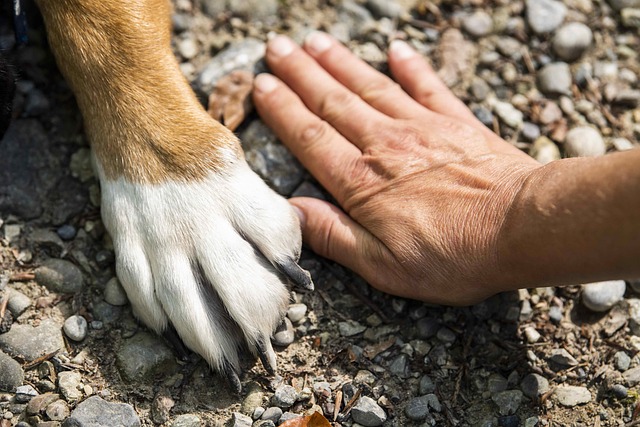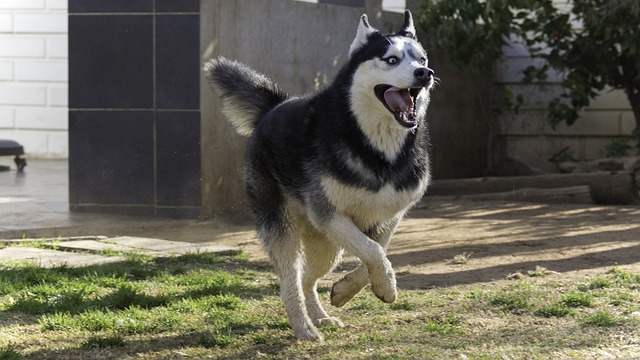Dogs have earned the title “man’s best friend” through thousands of years of loyal companionship, unconditional love, and remarkable adaptability to human lifestyles. As the world’s most popular pets, dogs offer unmatched devotion, protection, and emotional support to families across the globe. Understanding what makes dogs exceptional companions and how to care for them properly is essential for building a lifelong bond with your canine friend.
The Human-Dog Bond

The relationship between humans and dogs spans over 15,000 years, making it one of nature’s most successful partnerships. Unlike other pets, dogs have evolved specifically to read human emotions, respond to our commands, and integrate seamlessly into family structures. This unique co-evolution explains why dogs seem to understand us better than any other animal companion.
Dogs communicate through body language, vocalizations, and facial expressions that humans can easily interpret. A wagging tail, playful bow, or gentle nuzzle speaks volumes about your dog’s emotional state and intentions. This clear communication creates strong emotional bonds that benefit both species.
Popular Dog Breeds for Families
Small Breeds: Golden Retrievers and Labrador Retrievers consistently rank as top family dogs due to their gentle nature, intelligence, and patience with children. These breeds excel in various roles from therapy dogs to active outdoor companions. Beagles offer friendly dispositions and moderate exercise needs, making them excellent for first-time owners.

Medium Breeds: Border Collies showcase incredible intelligence and energy, perfect for active families who enjoy outdoor activities and mental challenges. Australian Shepherds combine loyalty with athleticism, while Bulldogs provide calm, affectionate companionship with lower exercise requirements.

Large Breeds: German Shepherds serve as excellent family protectors while remaining gentle with children. Great Danes, despite their imposing size, are known as “gentle giants” with calm temperaments. Saint Bernards offer patient, nurturing personalities ideal for families with young children.

Mixed Breeds: Don’t overlook shelter dogs and mixed breeds, which often display fewer genetic health issues while offering unique personality combinations and the satisfaction of providing a loving home to a dog in need.
Essential Training and Socialization
Proper training forms the foundation of successful dog ownership. Start with basic commands like sit, stay, come, and down, using positive reinforcement techniques. Consistency and patience yield better results than punishment-based methods.
Socialization during puppyhood (3-14 weeks) critically impacts your dog’s future behavior. Expose puppies to various people, animals, sounds, and environments in controlled, positive situations. Well-socialized dogs develop confidence and adaptability that lasts throughout their lives.
House training requires establishing routines, frequent outdoor trips, and immediate cleanup of accidents. Most dogs learn bathroom etiquette within 4-6 months with consistent practice.
Health and Nutrition Requirements
Feeding Guidelines: Provide high-quality dog food appropriate for your pet’s age, size, and activity level. Puppies need frequent small meals, while adult dogs typically eat twice daily. Avoid human foods toxic to dogs, including chocolate, grapes, onions, and xylitol-containing products.
Exercise Needs: Daily exercise requirements vary significantly by breed. Working dogs like Border Collies need 2+ hours of physical and mental stimulation, while lap dogs may be satisfied with short walks and indoor play. Inadequate exercise leads to behavioral problems, obesity, and destructive tendencies.
Healthcare: Regular veterinary checkups, vaccinations, and preventive care protect your dog’s health. Core vaccines include rabies, distemper, parvovirus, and adenovirus. Discuss parasite prevention, dental care, and spaying/neutering with your veterinarian.
Behavioral Understanding
Dogs are pack animals that thrive on clear leadership and structure. Establishing yourself as a calm, confident leader prevents behavioral issues and creates security for your dog. Consistent rules and boundaries help dogs understand their role in the family hierarchy.
Common behavioral challenges include excessive barking, jumping on people, pulling on leashes, and separation anxiety. Address these issues through positive training, adequate exercise, and sometimes professional help from certified dog trainers.
Benefits of Dog Ownership
Beyond companionship, dogs provide numerous health and social benefits. Studies show dog owners have lower blood pressure, reduced stress levels, and increased physical activity. Dogs encourage social interactions, provide security, and offer emotional support during difficult times.
Children raised with dogs often develop greater empathy, responsibility, and social skills. The daily routines of dog care teach valuable life lessons about commitment, compassion, and nurturing.
Responsibilities of Dog Ownership
Owning a dog requires significant time, financial, and emotional commitments. Dogs need daily exercise, regular grooming, veterinary care, and constant companionship. The average dog lives 10-15 years, requiring long-term dedication to their well-being.
Financial considerations include food, veterinary bills, grooming, training, and potential emergency medical costs. Budget for these expenses before bringing a dog home.
Choosing the Right Dog

Consider your lifestyle, living situation, and experience level when selecting a dog. Active families might enjoy energetic breeds, while apartment dwellers may prefer calmer, smaller dogs. Research breed characteristics, exercise needs, and potential health issues before deciding.
Conclusion
Dogs as pets offer unparalleled companionship, loyalty, and joy to families willing to provide proper care, training, and love. Their ability to form deep emotional bonds, provide protection, and enhance our daily lives makes them truly exceptional companions.
Success in dog ownership comes from understanding your dog’s needs, providing consistent training, and building a relationship based on mutual respect and affection. With proper preparation and commitment, a dog can become not just a pet, but a beloved family member who enriches your life for many years to come.
